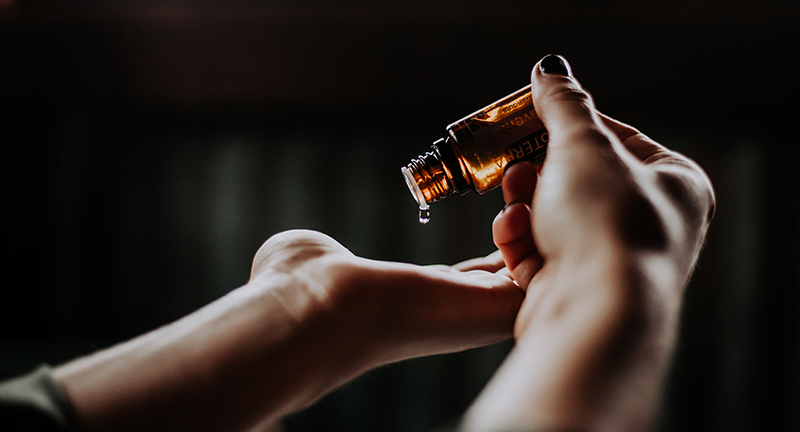
In our long careers as naturopathic physicians, Dr. Marcel and I have listened to just about every conceivable theory about healing, from the thought-provoking to the outlandish and far, far beyond.
Our patients routinely ask our opinions about information they’ve picked up on the Internet. We always do our best to help them sort the truth from the myths and scams.
On a more general theme, who actually has the truth – conventional medicine or people like us?

Conventional physicians tend to think of our therapies as voodoo, suspecting that our treatments involve drums and feathers.
(Our response: Why not – if it works?)
Conventional and alternative healers are equally dedicated to finding out what will work best for their patients.
Of course, we’re also equally subject to human error, particularly the temptation to become overly attached to beliefs that might not actually be well-founded.
Some of the areas where we’re in profound disagreement are: childhood immunizations, flu shots, cancer treatments, the use of pharmaceuticals, homeopathy, energy medicine, nontraditional interpretations of laboratory test results, and the fluoridation of water.
We’ve helped countless patients by our nonconventional approach. In many cases, those same patients have sought to take advantage of certain aspects of conventional medicine that they felt might be of help to them, only to be confronted by angry doctors who informed them that the natural therapies they were receiving were flatly wrong.
Conventional docs have even refused to treat our patients until they promised to discontinue the treatment protocols that were helping them!
Why the anger? Why the rejection of cures that were clearly working? Emotionally laden rejection of positive results is hardly an emotionally mature, dispassionate reaction.
It’s a well-established truth that two plus two equals four. A mathematician who is confident in his mastery of his subject would more likely be amused than angry if you insisted that “four” was no more than an agreed-upon lie. A wise man once said that the dogmatic tendency increases in direct proportion to our inability to prove our beliefs.
When the facts are swept aside in favor of self-serving beliefs, we’re witnessing the toxic emergence of rigid dogmatism, expressed as an unwillingness even to entertain the notion that there might other effective ways to help our patients.
I’m reminded of the polarized state of American politics and the toxic dogmatism that increasingly pervades public opinion today.
Our medical belief systems are formed of our training, our study of research findings, and opinions that we may have absorbed from our environment but that have no rational basis.
Idealistic young students enter the portals of conventional medical school and emerge four years later, steeped in the narrow-minded dogmas of the day.
If they were to walk into a naturopathic medical school, on the other hand, they would emerge with a different mentality. Naturopathy is open to consider any and all cures THAT WORK and that will not harm the patient.
As a newly certified MD, you’re sure to receive further training from the pharmaceutical industry, and you’ll become invested in the economics of drug sales.

As a naturopathic physician, you might receive further education from the nutraceutical industry, and you might become invested in the economics of nutritional and botanical and energetic medicines, and in labs that offer non-traditional diagnostic testing. But you will always know that if you allow your investment to make you dogmatic, you will have violated the naturopath’s code.
As health-seekers, we need to, independently and individually develop the capacity to discern truth from dogma. Fortunately, this has been made easier by free access to information on the Internet.
Meanwhile, the conventional media continue to pander to popular opinion in order to make a fast buck, by regurgitating the latest conventional medical theories. And the alternative media quietly continue to dispute the findings and present their independent interpretation of the facts.
A simple Google search will yield abundant evidence to support our views, whether reasonable or outlandish. Today, the burden is clearly on us, to learn to separate the wheat from the chaff.
Above all, we should give great value to the test of our own experience. Too often, our “truths” tend to be formed from the cloud of our pre-existing beliefs, our trust in dubious sources, and our abstract reasoning.
After reading an article that purports to debunk the health value of fish oil, I might decide that the researchers have based their conclusions on inaccurate dosages of inferior products used as monotherapy for a condition where fish-oil therapy was inappropriate in the first place. The authors might even have economic ties to companies with competing products. Even so, in our effort to discern the truth, we will routinely find articles for and against the study’s conclusions.
As naturopathic doctors, we humbly urge you consider the approach that we’ve arrived at after many years of practice. We strive very deliberately to keep our minds open, and to base our therapies on a careful evaluation of the research, balanced against our actual clinical experience.
Read more about the medical services Dr. Connie offers here: http://www.naturopathichealthconsultations.com
About food:
A Recipe for Brain Health:
Quinoa, Orange and Almond Salad
Quinoa is ideal for vegetarians, vegans, or anyone who simply wants to eat less meat and meat products. The chickpeas, almonds, greens, and oranges in the following recipe provide not only color, flavor, and texture, but many nutrients essential to support a “Healthy Brain.”
Ingredients:
2 15-oz cans mandarin oranges in their own juice, all but ¼ cup juice drained and discarded
1 cup quinoa
¼ cup fresh mint, loosely chopped
2 Tbsp extra virgin olive oil
15 oz canned chickpeas, rinsed and drained thoroughly
⅓ cup chopped almonds
¼ cup dried cranberries
1 tsp minced garlic (about 1 clove)
4 cups kale or greens, chopped
2 Tbsp apple cider vinegar
¼ tsp black pepper
Directions:
- Bring 2 cups of water to a boil. Add 1 cup quinoa, cover, and let simmer over low heat for about 15-20 minutes. Let cool.
- Add the mandarin oranges, mint, chickpeas, nuts, dried cranberries, and greens.
- In a separate dish, combine the vinegar, garlic, pepper, olive oil and the reserved ¼ cup juice from the mandarin oranges. Pour dressing over the quinoa mixture. Toss lightly. Serve chilled.
- Makes six servings
Source: Cleveland Clinic Healthy Brain website
